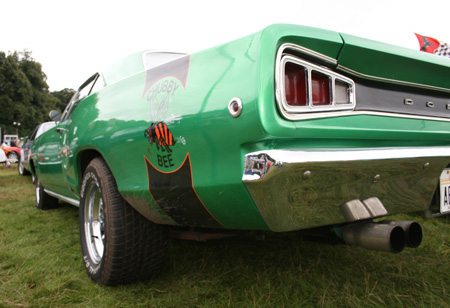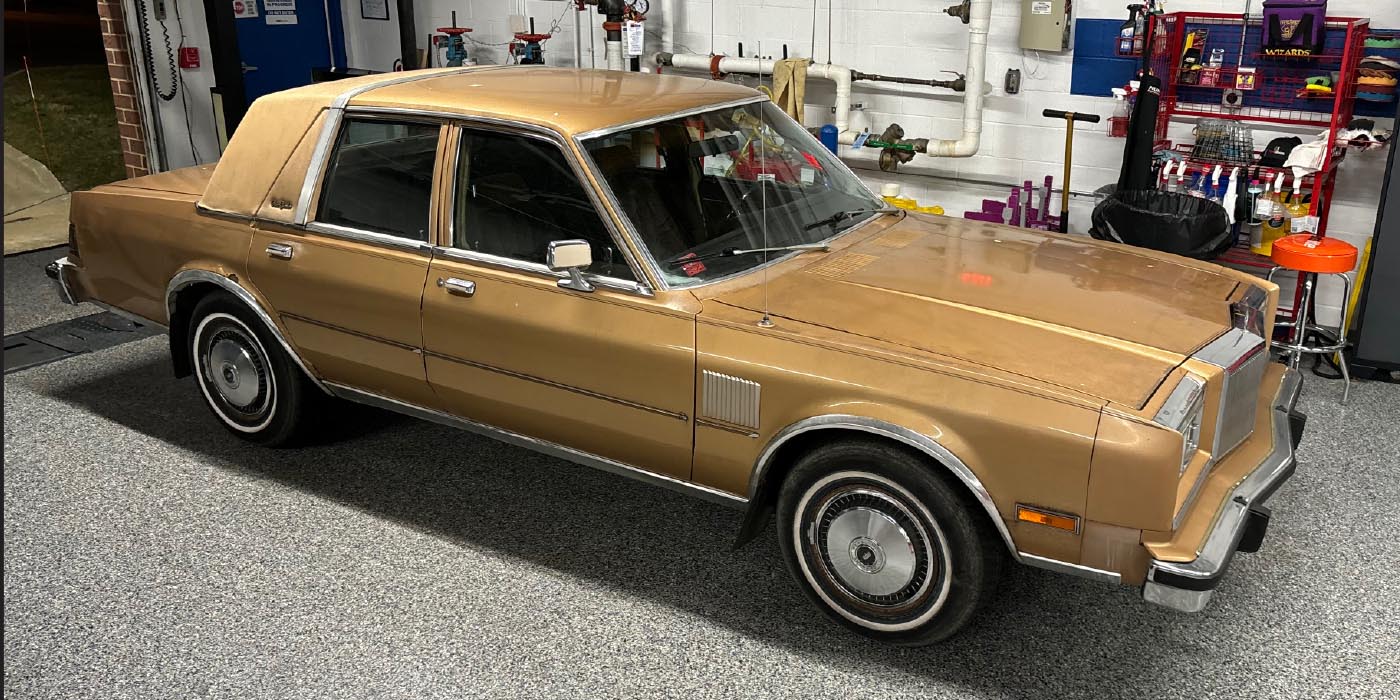By Doug Kaufman
Editor
Engine Builder
Let’s face it; concern over the environment is a very important thing. Who doesn’t want to keep the world clean for future generations? Until those colonies on the Moon and Mars that we’ve been promised materialize, we’ve only got this one world and we need to work together to live in it.

However, just like those Hollywood forecasts of intergalactic suburbs, we at Engine Builder believe the idea of government-funded vehicle scrappage programs (or “Cash For Clunkers”) are just that: science fiction stories that never should have been written.
The intent of the programs, we’re being told, is to clear the road of gas hogs, cleaning the environment and stimulating sales of new cars. People who turn in cars that are older than 8 or 9 years and get relatively poor gas mileage would receive a voucher, bonus or credit to buy a new, more fuel-efficient vehicle. It sounds positive – but we believe Cash For Clunker programs are bad for three reasons, and we urge you to join the growing list of industry associations, businesses and individuals in letting the bigwigs in Washington know how you feel.
1. Bad Environmental Policy: Since our birth in 1964, Engine Builder has supported the notion that rebuilding something (engines, for example) is often a better option than buying a new something (again, engines, for example). The ultimate green industry is the rebuilding industry, and we agree with SEMA (the Specialty Equipment Market Association) that the environmental cost to manufacture new vehicles far outweigh the benefits of scrapping older cars.
“You’re taking something out of the system that hasn’t been used for its lifespan,” said Stuart Gosswein, SEMA’s regulatory affairs director.
2. Bad Business Policy: Automotive enthusiasts often have a reputation for wanting “speed at any price,” but the fact of the matter is that many of us are ecologically conscious. Part of Gosswein’s efforts on Capitol Hill include reminding Congress that SEMA members actually make products that can make older cars more fuel efficient. The North American automotive aftermarket accounts for more than $50 billion annually – eliminating the vehicles that need these parts and the cores that can be rebuilt would eliminate a huge part of our nation’s economy.
3. Bad Economic Policy: As we know, cars last longer than ever. So, a 9-year-old Chevrolet Silverado 1500 LS may have no visible flaws yet be tagged with a “Clunker” label. The “cash” part of the label would give the owner a few thousand dollars to help buy a new car, but it’s nowhere close to actually replacing a paid-off vehicle. The solution? Why, take out a new car loan, of course! With attractive financing rates (assuming your credit isn’t completely ruined) and a six-year payment book, you’ll be driving that new econobox well into the future. Aren’t we already in this financial nightmare?
“It seems arrogant to destroy perfectly good vehicles with many more years of useful life just to entice consumers to purchase a car that they might not be able to afford,” said Kathleen Schmatz, AAIA president and CEO. “This is hauntingly reminiscent to the home mortgage debacle when consumers purchased homes they could not afford.”
Regardless of your political position, we believe Cash For Clunkers is a bad idea for our industry. Let’s quit pretending that it’s an environmental move (in fact, environmentalists don’t even think the program would have any impact) and come out and say what we all know is true: the only ones who benefit are the OEMs, as they’re able to move the iron that otherwise would just be sitting there.
A better move might be this: give tax credits for automotive repair work that improves efficiency and safety of vehicles currently on the road. If people want to buy new cars, by all means, give credits to them too. But let’s put dollars back into the economy by giving drivers an incentive to have service performed. It helps the local business, it helps fellow drivers, it helps national parts suppliers and, ultimately, it will help the environment as well.
We’re not alone, but we need your help. Joining SEMA in protesting the program are the Automotive Parts Rebuilders Association (APRA), the Engine Builders Association (AERA), Automotive Warehouse Distributors Association (AWDA), Automotive Aftermarket Industry Association (AAIA), Automotive Transmission Rebuilders Association (ATRA) and the Tire Industry Association (TIA).
What can you do? Interested parties can send an e-mail in opposition to the Cash for Clunkers program to the Speaker of the House, the Senate Majority Leader and their congressional representatives by visiting www.fightcashforclunkers.org and clicking on “Take Action.”
Just like in the best science fiction stories, it’s common sense and sheer determination that will be required to overcome this threat to our livelihood.
The easy thing to do would be to assume that someone else will handle this battle. The best thing to do is to fight back – you might be surprised at the power one more person might possess.


